- Home
- H A CULLEY
Seeking Jerusalem Page 16
Seeking Jerusalem Read online
Page 16
‘You wouldn’t!’ The youth was horrified, and then he thought of the time that he had seen his brother’s torturer peel the skin off of a captive to make him talk. He had been appalled by the brutality and, after being violently sick, he had crept away so as not to have to watch any more. He shuddered; he had never felt so alone and helpless. His brother was dead and all he wanted to do was go home to Anatolia.
‘Will you release me if I tell you?’
‘I can’t promise that but you will probably be exchanged for one of Saladin’s captives in due course, and you won’t be tortured if you help us now.’
‘Very well. The sultan is expecting a large caravan from Egypt in a week’s time. My brother didn’t tell me the details but I gathered it was vital to enable us to survive the winter and prevent you infidels from reaching the Holy City of Jerusalem.’ The lad spat at the Turcopole officer to show his opinion of his captors.
The man hit him hard in the face, splitting his lip and rattling the teeth in his head.
‘That’s enough!’ An imperious voice stopped the man from hitting him again. King Richard stepped from the shadows in the dungeon under Castel Moyen where the boy was being questioned. ‘Ask him how large this caravan is.’
The Turcopole translated Richard’s question then turned to the king. ‘He says that he’s not sure but it is very large and it is escorted by fresh Egyptian troops, enough to make good Saladin’s losses over the past year.’
‘Then we must be talking about thousands; the sultan lost seven thousand at Arsuf alone. Ask him which route the caravan will take.’
The youth refused to speak again at first, so the Turcopole hit him again, blackening one eye. When he still didn’t answer the torturer stepped forwards and, gripping the lad’s thumbnail in a small pair of tongs, he pulled it out with a quick twist of his wrist.
The Turk howled in pain and then sobbed to himself until his other thumbnail was gripped by the tongs. Then he couldn’t talk fast enough. Eventually the interpreter turned to Richard.
‘He says that the caravan is reputed to consist of some four thousand camels escorted by six thousand infantry and a thousand horsemen. It is carrying food for their army and their horses for the winter, gold and silver to pay the troops, armour and weapons and thirty thousand arrows.’
‘Well, for someone who didn’t know any of the details he suddenly seems to have remembered a great deal.’ Richard smiled in satisfaction. ‘Ask him which route the caravan is taking.’
The boy was clutching his injured hand and so sunk in misery he didn’t hear the question. The Turcopole hit him in the stomach so that he doubled up. Having got his attention, the man asked the question again.
‘It is coming up from the south, from Al Khalil.’
~#~
Richard de Cuille adjusted the position he was lying in to get more comfortable. He and his conroi were part of the king’s ambush at Al Khalil. The Lionheart had brought a thousand knights and their squires, two thousand serjeants and a thousand Turcopoles with him. Half of the serjeants were proficient with the crossbow. Even so, he was likely to be outnumbered by well over two to one if the camel drivers were taken into account.
The king had chosen his ambush site well. Al Khalil was only a small village but it lay around a large oasis in the valley along which the caravan would come. It was surrounded by small hills behind which the crusaders could hide. The villagers had been rounded up the previous day and were being held captive a few miles away until after the ambush was over. The Egyptians might think that it was odd that there were no locals there, as it was some way from the area being disputed by the crusaders and the Saracens, but Richard was gambling that they wouldn’t be too suspicious.
The ambush party had travelled light, bringing only dried meat, cheese and bread to eat and water skins, so they had to sleep in the sand. This was soft and pliant to the touch but, as soon as you tried to rest on it, the sand became as firm and as hard as if it were rock. Richard complained to Miles that he now ached in bones he didn’t know he possessed.
As it grew dark the camel train arrived at the oasis. It stretched for nearly a mile, even though the camels were walking three or four abreast. The horsemen formed the van and the rear guard with a hundred riding on each flank. Luckily they didn’t bother to ride along the tops of the hills but positioned themselves a couple of hundred yards from the caravan. The foot were divided into two divisions, one between the van guard and the camels and one in front of the rear guard. They looked complacent, as if they were still in Egypt.
When they camped, the Egyptians contented themselves with posting sentries around the perimeter of the camp and at the horse lines. Even these men showed every indication of being asleep by the light thrown out by the camp fires. King Richard would have placed picquets on all the surrounding hills to warn of a surprise attack
Small groups of Turcopoles crept down to the camp an hour before dawn and quietly cut the throats of the sentries at the horse lines. They then took the sentries’ places, waiting for the first rays of the sun to creep over the hills to the east.
At dawn the camel drivers appeared to take their camels in batches down to the small lake in the middle of the oasis to drink but the soldiers showed no eagerness to emerge from their tents. King Richard had planned the ambush well. His knights were massed behind the hills to the east so that, when they charged the sun would be at their backs and in the eyes of the enemy. The Turcopoles would sweep in from the north to drive the horse herds away, whilst the thousand serjeants with crossbows would advance from the south to within a few hundred yards and keep up a relentless fire at any groups of the Egyptian troops who tried to form up. The remaining thousand serjeants waited along the hills to the west to mop up any of the enemy who tried to escape that way.
The surprise was complete. The attack caused panic and few Egyptians tried to fight. Their only thought was to escape the swords of the crusaders. Richard de Cuille led his conroi in the first wave and met very little organised resistance. Lances had been left with the squires this time and they chopped down at the running enemy with sword, mace and axe. Within five minutes they had ridden through the camp and turned to retrace their steps. Many of the tents had been collapsed by the charging horses and those occupants who hadn’t been trampled to death were desperately trying to fight their way clear of the clinging material of the tents.
Several thousand had fled to the west where they ran into the mounted serjeants. They then tried to escape to the south but found the Turcopoles waiting for them. Most had thrown away their weapons, or had left them in their tents, so they had little option but to surrender; this they did in droves.
About two thousand of the Egyptians had managed to arm themselves and had now formed up to fight the crusaders but they had few bowmen and so couldn’t reply to the hail of quarrels that kept striking them down. The crossbowmen were firing in volleys with one third firing in turn whilst the rest reloaded. Eventually the enemy had enough of this and they charged towards the serjeants, only to be charged in the flank by Richard’s conroi. Although the knights only managed to cut about thirty men down, this was the final straw and the formation broke apart as the demoralised men tried to flee like the rest.
An hour after dawn it was all over. The Egyptians had suffered over two thousand casualties and another thousand had been captured. The rest had managed to make it out of the valley but most would die in the barren waste of the Sinai as they tried to get home without supplies or water skins. The young Turk hadn’t lied. Over three thousand camels had been captured together with nearly a thousand horses. Regrettably, they were too light for knights to ride in battle, but they were excellent remounts for the serjeants, squires and Turcopoles.
The king returned to Ramla and prepared the army to advance again. By Christmas they had reached Latrun and then, just after the New Year, they reached Beit Nuba, just twelve miles from Jerusalem. Then the weather broke. Constant heavy rain turned the route throu
gh the mountains into a quagmire so only the camels could be used to resupply the army.
Richard de Cuille and Miles sat playing shatranj in the tent that they shared, wet and miserable. Their clothes all had mildew and their squires had a full time job trying to get rid of the rust that kept appearing on their helms and chain mail. To make matters worse, they were short of food. Saladin had ambushed the resupply caravan from Jaffa two days ago, killing most of the escort of five hundred knights, serjeants and Turcopoles.
‘I hear that we only have one week’s worth of food left, even on short rations,’ Miles observed gloomily.
‘It’s going to take longer than that for another caravan to reach us, even if there is enough food ready at Jaffa.’ Richard sniffed then shivered - symptoms of the bad cold he was suffering from.
‘What do you think the king will do?’ Miles moved a piece on the board, putting his opponent in check.
Richard took a sip of his wine, which was barely drinkable but it was all that he had left, before moving his king out of danger. ‘I can’t see that he has any option. We are going to have to withdraw to shorten our lines of communication.’
‘To Ramla?’
‘Probably. But if Richard does that he risks losing the support of those who think that we should press on now and besiege Jerusalem.’
Miles was appalled. ‘In this weather? They must be mad.’
‘They’re French; enough said.’ And both men burst out laughing.
De Cuille’s prediction was correct. Two days later the retreat to Ramla began, as did the defection of most of the French contingent under the Duke of Burgundy. Many of the other non-English crusaders left too. With the break-up of his army, the king now had no option but to continue the retreat to Jaffa. All that King Richard had achieved in the past six months was for nothing, and now he only had his English troops and those of his nephew, Henry of Champagne, with which to fight Saladin. What was even worse was the expectation that Saladin would be able to form a new army in the spring. It looked as if the Third Crusade was over.
Chapter Nine – England – 1192
Waldo Cuille sat on the rush strewn floor with his back against the cold, damp stone wall. His cell in the Tower of London was on the second floor of one of the towers in the wall of the inner bailey. At least he got some fresh air from the river through the small unglazed window high up in one of the walls of the small room, though it was too far up to see out of. The window was the only source of light and now, at mid-afternoon on a cold February day, it was getting dark again.
He had been brought to London from the dungeon of Nottingham Castle three months ago. With no means of washing and no clean clothes, he stank and had been bitten all over his body by an infestation of bugs of various types. As a tenant-in-chief of the king, his case would be heard in the king’s court, where at least he was likely to get a fairer trial than if he had been arraigned before the sheriff in Nottingham.
He didn’t think that he had much chance of avoiding the headsman’s axe. He had murdered a deputy sheriff in cold blood and his defence that the man had killed his twin sister wasn’t likely to count for much. He couldn’t prove that Beauilly had been responsible for her death and, even if he could show that he beat her badly, she was his wife and was allowed to treat her as he saw fit.
The following day he heard the bolts to the door of his cell being withdrawn. It wasn’t time for his slop bucket to be emptied or for his one meal of the day, so he wondered if it time for his trial. Instead it was a visitor. At first he didn’t know who it was, other than it was a lady, then the jailer bowed and muttered the word ‘madam’ and he realised with start that it must be Queen Eleanor. He got up from the floor and bowed briefly, curious to know what the dowager queen could want with him.
‘I’m told that you killed a man because he beat your sister to death,’ Eleanor began without preamble.
‘That’s true, madam.’ Waldo couldn’t imagine why the queen would be interested in his case. ‘Though I don’t know how I can prove that he killed her. His men are close mouthed and I had enough trouble finding out the truth myself, so I can’t prove it before the justicar.’
‘John Beauilly was a man who ruled by fear, it seems. Now that he is dead there are many who will support your claim.’ What she didn’t add was that the Sheriff of Nottinghamshire and Derbyshire had been stirring up trouble and spreading rumours that King Richard was dead with the aim of having Prince John declared king. William Marshal would have liked to charge him with treason but he had a difficult path to tread and had to be content with removing him as sheriff. Beauilly had been active in his master’s machinations so Marshal was glad that he had been disposed of. He was therefore beholden to Waldo, but justice still had to take its course.
He had decided to try Waldo’s case himself as co-regent but he had to be seen to be impartial. He had wanted to see that Waldo was being cared for properly; a broken man in rags was more likely to be treated harshly than a well-dressed noble. It wasn’t fair, but it was a question of appearances. A man who looked like a ruffian was likely to be thought one before a word was spoken. He had spoken to Eleanor about the matter and she had readily agreed to pay Waldo a visit. She was as concerned about John’s plotting against her favourite son as William Marshal and was just as grateful privately to Waldo for removing one of his supporters.
‘I am sad to see you looking so ill-used, Sir Waldo. Whatever you are charged with, a knight who has lost his right arm in the service of my son on crusade deserved better treatment. I will see what can be done about improving your conditions. You certainly could do with a good wash and clean clothes before your trial in two days’ time.’
With that she turned and swept majestically out of the cell, leaving Waldo somewhat bemused.
That afternoon he was moved to a more spacious cell with a glazed window overlooking the inner bailey. In his old cell he had to make do with a straw filled palliasse on the cold floor. Here there was a proper bed as well as a small table and chair to eat his meals at. There was a garderobe in the corner, obviating the need for the slop bucket, and clean clothes were laid out on the bed. After a few minutes he was taken to another room where a bath had been filled with water so he could bathe.
The water was icy cold but it was good to wash months of filth and grime from his body and his hair. His old clothes were taken away to be burnt and, once back in his new cell, he dressed in clean braies and stockings, a linen under-tunic and a woollen overtunic. His old shoes were still serviceable, if a little scuffed and worn, which was as well as the new ones provided for him were too small. His new outfit was completed by a blue woollen surcoat on which the badge of a crusader had been stitched.
His new cell had two candles in a sconce attached to one wall, which his jailer came and lit at dusk when he also ushered in a barber. The new jailer treated him with deference; unlike the last one who used it think it a huge joke to spit in the miserable stew that was his only fare each day before he gave it to him. The barber scraped away his beard leaving his face feeling raw and tender, but it took years off Waldo’s appearance.
Two days later Waldo was taken to face trial before William Marshal, Earl of Pembroke, and two other judges who he didn’t recognise. First, two of the men who had witnessed Waldo stabbing John Beauilly were called. Then Waldo admitted that he had killed the deputy sheriff and stated the reasons why he had done so. Someone had found several witnesses who testified as to Beauilly’s treatment of Margaret de Cuille, including one of the serjeants who had buried her. By the time that they had finished, the sympathy of the onlookers lay with Waldo and his dead sister. But it wasn’t up to the crowd; his fate was in the hands of the three judges and they seemed to be taking a long time arguing amongst themselves in hushed whispers. The longer they took, the more Waldo resigned himself to facing execution.
~#~
Turstin lay dying in his bedchamber in the constable’s tower of Harbottle Castle. At dinner the previous day he
had suddenly complained of pain in his chest and left arm and started to wheeze. He had stood up but then overbalanced and collapsed on the floor vomiting. He was carried to his bedchamber and the barber-surgeon had bled him but he continued to have difficulty in breathing. The pain in his chest eased, but then the next morning it came back again.
Edwin had never left his father’s side. He was due to turn twenty in two months’ time so he still had over a year to complete as a squire but his father’s last act was to knight him. He cuffed his son to dub him a knight in front of the steward and three of the household knights. It was intended to remind the young man of his knightly vows but the old man’s touch was more like the tickle of a feather than the teeth rattling blow that was normally delivered on these occasions. Having delivered the accolade, Turstin fell back onto the bed and died with a satisfied smile on his face.
Turstin’s death left the steward in something of a quandary. The old knight had been made constable on the departure of Richard de Cuille on crusade and, with Miles leaving as well, the steward had been left in charge of Otterburn Castle, where Miles had been constable. None of the few knights left behind were of the calibre to take charge of the management of a castle and the steward couldn’t be in two places at once; besides, he had his main duties to perform – the running of a large estate consisting of a dozen or so manors spread over a vast tract of territory. Edwin was a promising lad, but he was far too young and inexperienced.
The steward therefore sent a messenger to Lord Richard’s brother, Edward, at Berwick to ask for his advice. Two days later Edward de Cuille arrived at Harbottle to discover that he was just in time. Odo de Roos had taken the opportunity to seize the manor of Wark and the de Cuille steward didn’t know what to do. The de Roos family had long coveted Wark, which lay on the south bank of the River Tweed, adjacent to their manor of Carham.

 The Wolf and the Raven
The Wolf and the Raven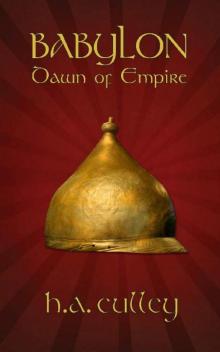 Dawn of Empire
Dawn of Empire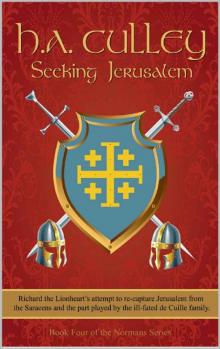 Seeking Jerusalem
Seeking Jerusalem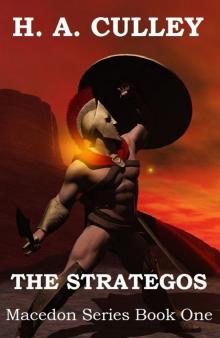 The Strategos
The Strategos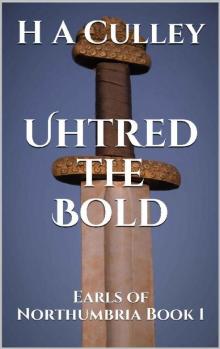 Uhtred the Bold
Uhtred the Bold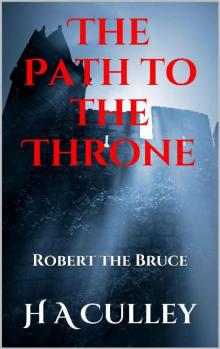 The Path to the Throne
The Path to the Throne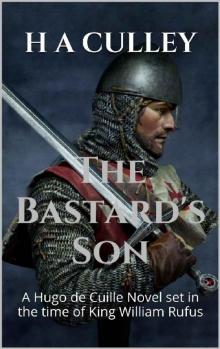 The Bastard's Son
The Bastard's Son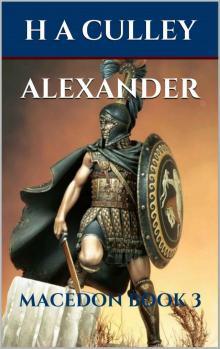 Alexander
Alexander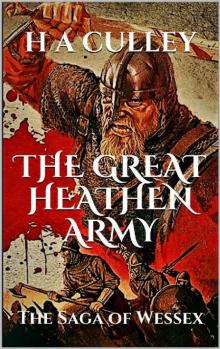 The Great Heathen Army
The Great Heathen Army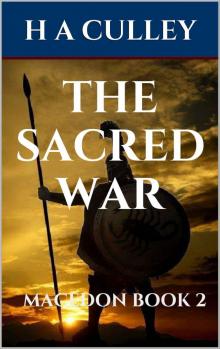 The Sacred War
The Sacred War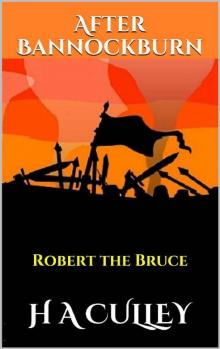 After Bannockburn
After Bannockburn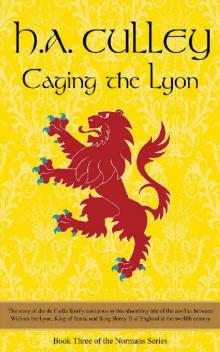 Caging the Lyon
Caging the Lyon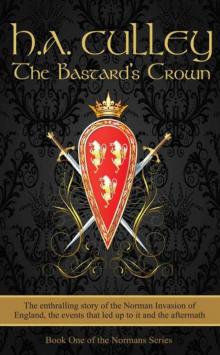 The Bastard's Crown
The Bastard's Crown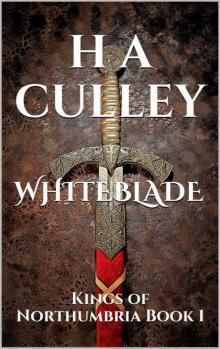 WHITEBLADE
WHITEBLADE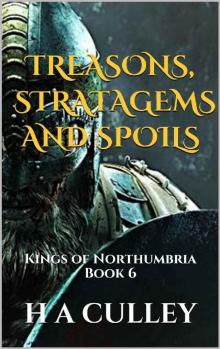 TREASONS, STRATAGEMS AND SPOILS: Kings of Northumbria Book 6
TREASONS, STRATAGEMS AND SPOILS: Kings of Northumbria Book 6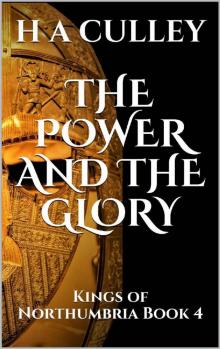 THE POWER AND THE GLORY: Kings of Northumbria Book 4
THE POWER AND THE GLORY: Kings of Northumbria Book 4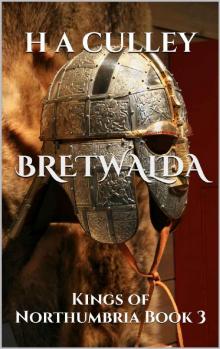 BRETWALDA: Kings of Northumbria Book 3
BRETWALDA: Kings of Northumbria Book 3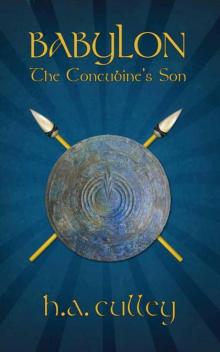 The Concubine's Son
The Concubine's Son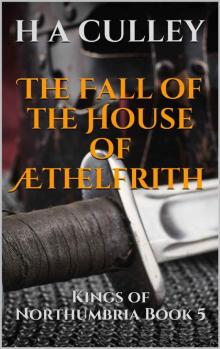 The Fall of the House of Æthelfrith: Kings of Northumbria Book 5
The Fall of the House of Æthelfrith: Kings of Northumbria Book 5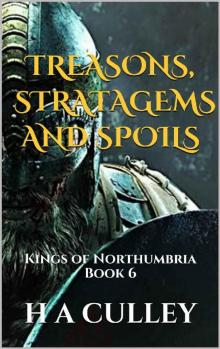 TREASONS, STRATAGEMS AND SPOILS
TREASONS, STRATAGEMS AND SPOILS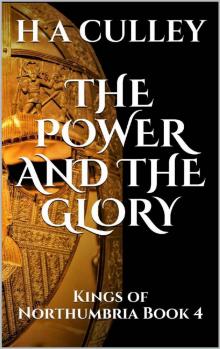 THE POWER AND THE GLORY
THE POWER AND THE GLORY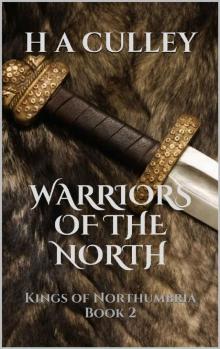 WARRIORS OF THE NORTH
WARRIORS OF THE NORTH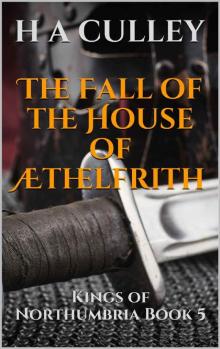 The Fall of the House of Æthelfrith
The Fall of the House of Æthelfrith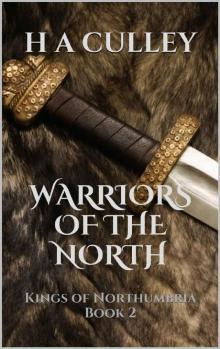 WARRIORS OF THE NORTH: Kings of Northumbria Book 2
WARRIORS OF THE NORTH: Kings of Northumbria Book 2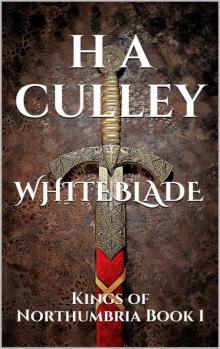 WHITEBLADE: Kings of Northumbria Book 1
WHITEBLADE: Kings of Northumbria Book 1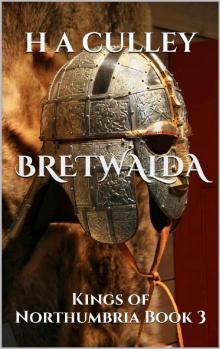 BRETWALDA
BRETWALDA